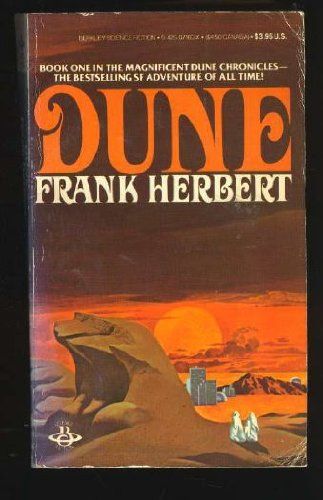Shabbat Gathering: Folding space and time and Dune.

Dear Chevra, as is our custom, we will gather tonight at 5.45p ct to welcome Shabbat. These are the coordinates:
Zoom
Meeting ID: 963 5113 1550
Password: 1989
Phone: +1 312 626 6799
(To unsubscribe from the newsletter, click the link at the very bottom of this email.)
First, editorial prerogative.
December sucked for me: My mother died on December 3 and my aunt died on December 24. I'm overwhelmed. Your support has lifted me up and made my burden easier to bear. Thank you very much.
Here we go.
I’m not a sci-fi nerd, well, not really though during the past two years since I arrived in Arkansas, I’ve watched more than 580 episodes of Star Trek and have written before about about Star Trek here in this newsletter. I recently came across an arcane Jewish concept that made me think of Frank Herbert’s Dune, and at risk of trivializing that Jewish concept, I’m writing about it this week.
For those of you not familiar with Dune (and I’ve only read the first book and watched both movie versions), the protagonist is Paul Atreides, rather a messianic figure and is described as the Kwisatz Haderach. Among other mystical abilities ascribed to Paul is the power to fold space and time to instantly travel from one place to another which is mighty useful when dealing with the vastness of the universe.

Rashi and the Kefitzat Haderech.
In what is probably not a coincidence, Kwisatz Haderach “rhymes” with Kefitzat Haderech, the Jewish mystical concept of folding space and time to travel instantly anywhere.
According to Rashi, the first instance of Kefitzat Haderech occurs in Torah during the story of Eliezer, Abraham’s servant, traveling to find a wife (Rebecca) for Isaac. In the story, Eliezer tells Bethuel (Rebecca’s father) and Laban (Rebecca’s brother) that he made the long journey to find them in less than one day. Rashi says that this miraculous shortening of the trip is attributable to the power of Kefitzat Haderech.
I’m not surprised by the “synergy” we find between Torah and Dune. After only a minimum amount of digging, I came across this article: Jews of Dune, Jewish Review of Books, by Michael Weingrad (March 29, 2015). I learned there are many references to Judaism in Dune.
The Bible is an archetype for so much of western canon. Shakespeare, for example, couldn’t be Shakespeare without the Bible. Frank Herbert is a long way away from Shakespeare (chronologically and talent-wise), but in any author’s search for currency with readers, the Bible is a common source.

Everything is there.
The more time I spend with Torah / Talmud, the more time I’m convinced it contains an actual infinity of ideas and stories. The Kefitzat Haderech is just one more of these ideas. Technology has brought something like Kefitzat Haderech to our lives. When my daughters were growing up and I would be driving them around, they lived in a world where they could talk to anyone anywhere through the miracle of a cellphone. It was as if they were folding time and space. What I find more relevant to my own life is the folding of time / space of Jewish texts through Sefaria. I’m able to jump to Babylon, Jerusalem, Vilna, and so many other places across time and space all without leaving my kitchen table. We can call that almost anything, including a miracle. Kefitzat Haderech indeed.
And may it be for all of us a blessing.
See you tonight!
Gut Shabbes!
All my love,
brian.
PS
I'm still studying Yiddish on Duolingo (more than 580 consecutive days). Because I was "raised" in an Ashkenazic family in NYC, I feel like this connects me to my roots. Here's a story from Kveller about a more traditional experience from the Kveller blog.

The Yiddish Words That Connect Four Generations of My Family
In my family, the most laughter-inducing expressions were my mother’s, especially when she reported on her dinner parties. Her encouragement of guests to help themselves to seconds of pot roast bordered on bullying, i.e., “That’s all you’re taking? You call that a portion?”
But after everyone left and she discovered there weren’t enough leftovers to constitute our next night’s dinner, she remarked, “They ate like chazzers!” (pigs).
The poor guests couldn’t win.
-30-